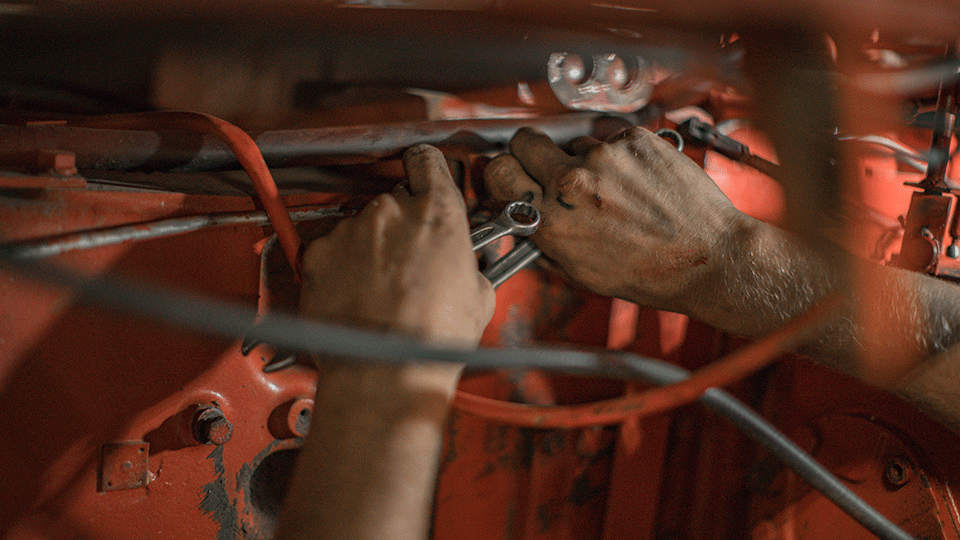 Whether you’re just starting to research mechanic careers or have been in this field for years, understanding the ways mechanics are paid is important — this is your livelihood we’re talking about.
Whether you’re just starting to research mechanic careers or have been in this field for years, understanding the ways mechanics are paid is important — this is your livelihood we’re talking about.
Working as a mechanic is an excellent career move as you’ll develop highly-employable skills and receive competitive pay. Today, there are more than 200,000 diesel mechanics in the U.S., each earning $37,000-$100,000+ per year.
Companies are always looking to bring on new mechanics and this demand will only grow in the future as current mechanics retire from the workforce (on average, diesel mechanics are 42 years old).
So, if you’re thinking about becoming a mechanic — diesel, auto or otherwise — now is a great time to start.
Diesel mechanics are essential workers at Anderson Trucking Service (ATS) as they keep our fleet running safely and efficiently. And, as a growing company, we are always looking to add talented mechanics to all of our shops.
In this article, you’ll learn about the most common mechanic pay structures used by employers across industries, how they work and what their advantages and disadvantages are.
How Are Mechanics Paid?
Mechanics are commonly compensated in one of two ways, depending on the industry they work in and the systems their employer has in place. As a mechanic, expect to either be paid hourly or with a flat rate (paid out by the job).
Although your preference will be taken into account, your pay will likely be structured the same as the other mechanics at your organization.
In some industries — due to the nature of the work — mechanics are paid by the job, while other industries warrant hourly pay structures.
How Does an Hourly Pay Structure Work For Mechanics?
As a mechanic that’s paid by the hour, you will earn a set dollar amount for every hour you’re on the clock. Your pay won’t change based on the number of jobs you complete or the total work you accomplish.
Under this structure, a mechanic earning $25 per hour, for example, makes $1,000 during a 40-hour work week. The per-hour wage a mechanic receives is based on experience, tenure, industry and job competition.
Advantages of Earning an Hourly Paycheck as a Mechanic
There are several advantages of getting paid hourly as a mechanic.
Compared to being paid a flat, by-the-job amount, the advantages of receiving an hourly paycheck are:
- You aren’t incentivized to only work fast. This is good for new(er) mechanics who are just learning.
- You’re paid the same, regardless of the jobs you accomplish.
- Overtime is available in some instances, allowing mechanics to earn more when they work over 40/45 hours per week.
- Hourly mechanics can earn more when working on a holiday — one and a half times their normal wage, most commonly.
Disadvantages of Earning an Hourly Paycheck as a Mechanic
The most striking disadvantages of earning an hourly wage as a mechanic are:
- You make the same amount, no matter how much work you get done during your shift.
- Hourly paychecks can lead to complacency as you’re not incentivized to work efficiently.
- Earning by the hour can leave you earning less when there is a lot of work to accomplish.

How Does a Flat-Rate Pay Structure Work For Mechanics?
With a flat-rate structure in place, mechanics are paid a set amount every time they complete a job. In this system, management attaches timeframes to each task based on how long they should take to complete. These discernments are made by referencing how long similar jobs have taken. Mechanics are then paid according to the number of jobs they finish over time.
If, for example, a task is estimated to take two hours, the mechanic assigned to it will be paid for this time. Whether it takes this mechanic more or less than two hours to complete doesn’t change how much they make. Flat-rate pay structures are more commonly used to compensate auto mechanics than mechanics in other fields.
Related Content: Auto Mechanic to Diesel Mechanic: What to Know About Making This Switch
Advantages of Earning a Flat-Rate Paycheck as a Mechanic
Concerning flat-rate compensation structures, here are the main advantages:
- Flat-rate compensation systems give efficient and experienced mechanics higher earning potential.
- This system allows high performers to earn more in less time, promoting greater work-life balance for motivated mechanics.
Disadvantages of Earning a Flat-Rate Paycheck as a Mechanic
The main disadvantages of being paid a flat rate as a mechanic are:
- Flat-rate pay is unpredictable as mechanics are not guaranteed to make a certain amount per day.
- When things are slow, with few jobs to go around, mechanics can’t earn as much with a flat-rate system.
- Flat-rate pay is usually used when companies need to get as much work done as possible. As such, more productive mechanics are given more work and less efficient mechanics aren’t given as much. This can also be a disadvantage for newer mechanics who may not be given as many jobs under this structure.
Check Out ATS’ Current Mechanic Positions!
Great mechanics always have the opportunity to explore their interests. Whether it’s switching industries, or the kinds of machines you work on, you’ll always have exciting career options in this field.
The transportation industry can be a great place to work and is always looking to add mechanics to its ranks.
As an industry-leading transportation company, ATS’ mechanics make a measurable impact on the world. Additionally, our mechanics are paid using an hourly/flat-rate hybrid system. With this model, ATS mechanics receive an hourly wage and additional monthly payments for all jobs completed properly within their allotted time.
So, if you’re looking for a new career home, or to start your journey as a mechanic (we’re happy to train you), consider joining ATS. Click here to find an open position near you.




